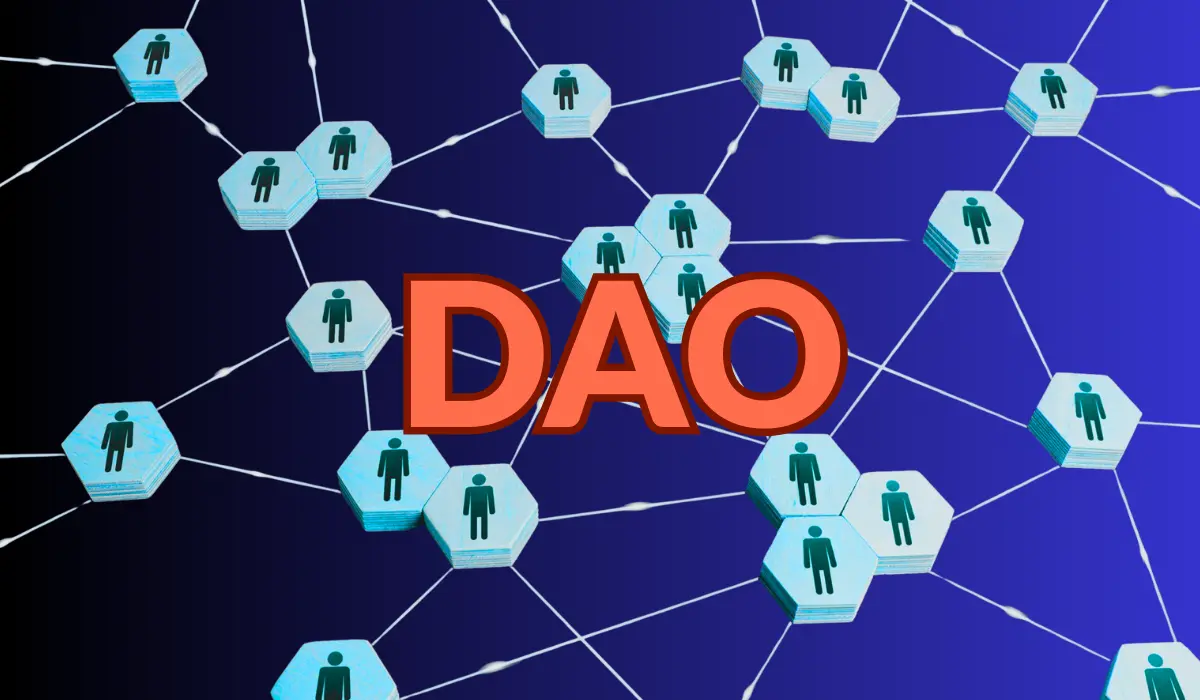What is Decentralized Organizations? Explained for Beginners

Decentralized Organizations, or to be precise, Decentralized Autonomous Organizations, can be a challenging topic to comprehend. It becomes a more complicated task, especially when you are trying to understand it for the very first time. That is why we have curated such an article to match your needs and understanding in the simplest terms possible.
Just as the name of the firm suggests, these organizations function in a decentralized manner. Apart from that, there will not be an authorized governing system in them. The operational and governance structure of Decentralized Organizations will be based on a couple of rules and regulations of the blockchain system. Now, that is everything you need to know as an introduction to Decentralized Autonomous Organizations (DAOs). You will get to know more in the sections that follow.
Decentralized Autonomous Organizations (DAOs)
Decentralized Autonomous Organizations are firms without a centralized governing body or authority. These organizations would be mostly run by some communities, and they will abide by the rules and regulations fixed by the blockchain system.
Smart Contracts and DAOs
Smart Contracts are the basis of their operational system. These codes are mostly automated and are visible in the form of code. However, it is also important to note that these smart contracts or large forms of code run automatically only when certain criteria are met. Setting rules and regulations based on the blockchain ecosystem is also based on these Smart Contracts.
Transparency and DAOs
One of the most significant aspects of Decentralized Autonomous Organizations (DAOs) is nothing but the priority they give to transparency in their transactions. Any outsider who would like to audit their functions can easily get it done by viewing and analysing their code. Such a transparent functionality is made possible through the open-source blockchain systems that are characteristic of the Decentralized Autonomous Organizations.
The Management Behind the Decentralized Autonomous Organizations (DAOs)
Have you ever wondered about the hands behind these Decentralized Autonomous Organizations (DAOs)? We have already told you that these organizations will be held and run by some communities. Here is everything you need to know about these communities behind such DAOs. These communities are primarily internet-native organizations. They will have members but not any leaders. The ownership and management of the DAOs will be carried out by these community members.
Treasuries of DOAs
Since these are financial organizations requiring high safety and security, the management of their treasuries will become another matter of concern. Here, the DAOs have made sure that the treasuries can only be accessed with the consent and approval of their registered members. The concern regarding treasury management and safety is thus resolved.
Decision Making of DOAs
If the organization is required to make any decision regarding its function and management, this is done through a polling system in which all the members participate. For this, proposals would be presented to the members as an initiation seeking feedback. You can exercise the authority to vote in these polls only if you have a stake in the organization.
Participating in the polls and creating the proposals is possible according to the stake you have in the DAO. Just like all the other polling mechanisms, the proposal will proceed to the next level if and only if it wins a majority in the poll. If it fails to win the majority of votes, it goes to the trash. It is also important to note that the percentage of the majority is different for different DAOs out there. The majority percentage can be seen mentioned in the Smart Contract of every DAO.
Merits of DAOs
There are a lot of perks in following the structure and operational system of a DAO. The popularity of such organizations is increasing day by day on account of the same reasons. Here are some of the main reasons for your reference.
- Decentralization is the main advantage of DAOs. Power struggles can be seen in almost every organization out there. That is the reason why it is important to decentralize the power structure, and thus, it becomes possible to maintain a democratic environment within the organization.
- Transparency is another important and attractive feature of DAOs. This increases the reliability of the investors and members in the organization, as noted in the OECD’s Blockchain policy series.
Challenges of DOAs
- Security is the one and only challenge that DOAs need to focus on and address to survive and thrive in this economy, according to the IMF’s digital currency series. Voting rights are currently held by the registered members who have bought tokens from the DOAs. This can lead people with more capital to buy more tokens, and thus, gradually, the very decentralized nature of the organization may be lost. Centralizing the power can eventually become a compromise of the security aspects of the treasury.
Popular DAOs in the Market
- The DAO is one of the most popular Decentralized Autonomous Organizations. However, it had to face a major setback due to a cryptocurrency drain.
- ConstitutionDAO is another major firm in this domain. One of the main agendas of this firm was to have a copy of the Constitution of the USA. However, it became a failed attempt.
Conclusion
With that, we are wrapping up this guide to Decentralized Autonomous Organizations (DAOs). This article is written in a way that every beginner can acquire a comprehensive understanding of DAOs. Moreover, we have also tried to include details such as its management, voting systems, smart contracts, advantages, challenges, and popular DAOs in action, so that you will never miss out on anything important, even if you are just beginning to understand the basics of DAOs.
Crypto & Blockchain Expert
